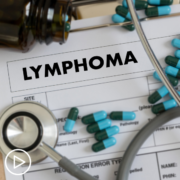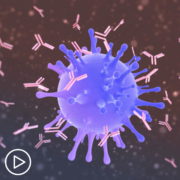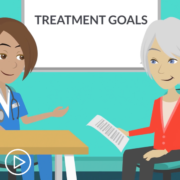What’s the News on Follicular Lymphoma and Bispecific Antibodies?
What’s the News on Follicular Lymphoma and Bispecific Antibodies? from Patient Empowerment Network on Vimeo.
What should follicular lymphoma patients know about bispecific antibodies? Expert Dr. Kami Maddocks from The Ohio State University discusses treatment and research updates on bispecific antibodies.
See More from START HERE Follicular Lymphoma
Related Resources:

What’s New for Follicular Lymphoma Treatment News and Developments? |

|

|
Transcript:
Lisa Hatfield:
So regarding clinical trials right now, are there any clinical trials that you are conducting or that you’re particularly excited about for patients that they might want to ask their providers about?
Dr. Kami Maddocks:
Yes, so we’re also looking at opening a trial for frontline follicular lymphoma that looks at the use of bispecific antibodies. So I think that’s very exciting, because in general, it’s a well-tolerated therapy. And I think if it gives us a chance to produce very good outcomes, but without the toxicity of chemotherapy in the frontline setting, that to me is super exciting for patients.
We’re also looking at different bispecific antibodies. So they currently approved one target CD20. We have a CD19-targeted bispecific antibody that I also think is exciting to look at the potential for different targets because then once a patient has had one, you’re targeting something different, and the thought is that they might still be able to respond to a different one.
Lisa Hatfield:
Yeah. So with bispecifics then, is that continuous therapy, or is that limited duration therapy?
Dr. Kami Maddocks:
It actually depends on the bispecific. So in follicular right now, the one approved is for a limited duration. When you look at a few of the others that have been approved and other lymphomas that are being studied in follicular lymphoma, there’s a little bit of a variation between continued treatment and limited-duration therapy. I think what’s exciting about a lot of the combination studies is they are more looking at a defined period of time with the combinations.
Lisa Hatfield:
Which I’m sure a lot of patients love to hear that. Limited duration, there’s an end to this possibly, so yeah.
Dr. Kami Maddocks:
Yeah. Nobody wants to be on treatment forever.
Share Your Feedback:
Create your own user feedback survey










